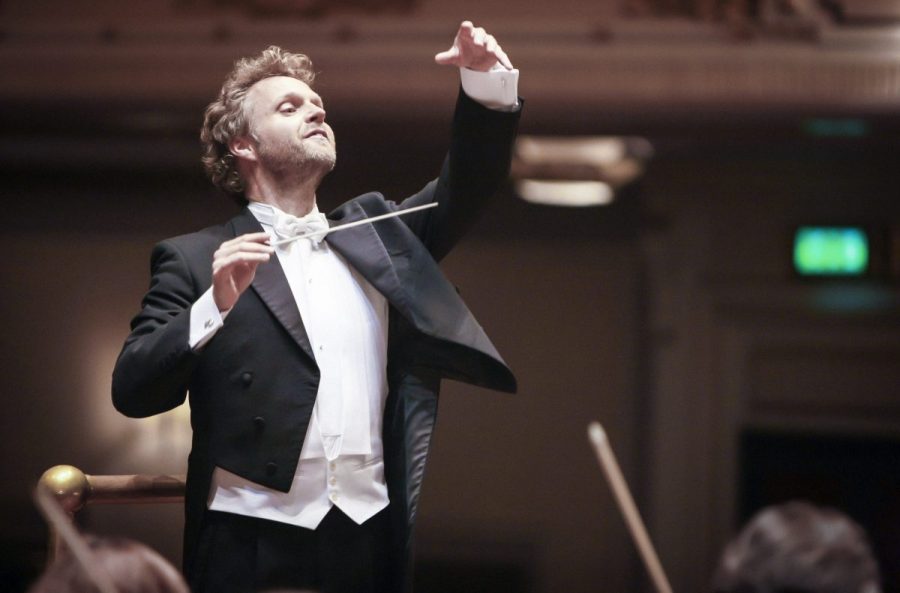@ Usher Hall, Edinburgh, on Fri 29 Apr 2016
With the exception of The Rite of Spring, Stravinsky’s music seems surprisingly little played in the UK, despite its obvious importance and the influence it has had on 20th Century music. It is therefore exciting that the RSNO launches its admittedly short Stravinsky Project tonight, featuring two of Stravinsky’s later works juxtaposed with two Schubert symphonies.
It is nice to see the RSNO getting the chance to play more chamber-sized works, although this also means they are at their most exposed. Both Schubert symphonies—No. 3 and No. 4 (the Tragic)—really need a lighter touch and better-articulated phrasing to bring them properly alive. Although the smaller than usual number of strings has a fantastic sound, which is tight and generally well together, the woodwind are surprisingly untidy in places and simply have nowhere to hide.
It is all a bit straggly and uninspired. The final movement of Schubert’s 3rd Symphony, for example, is certainly presto vivace: it shoots off like a bullet train, but unfortunately not everyone has managed to come aboard. The 4th Symphony feels more controlled but has been switched to autopilot for a safe and comfortable, but ultimately uneventful flight.
The orchestra is much more on form for both Stravinsky works, showing off Stravinsky’s deft orchestration very nicely, getting the balance just right to allow a real synthesis of timbre. Although Symphony in C would certainly benefit from a little more bounce, the Symphony in Three Movements is played very well indeed, benefitting from Søndergård’s tight conducting style: it is such a pleasure to hear this work.
Although the inclusion of so much Schubert may have seemed like a good idea conceptually—creating a marriage of the classical and neoclassical—musically this is the lead weight that sinks the programme to the bottom. It feels as if there was a missed opportunity here to include at least a little more 20th Century music, in order to contextualise the Stravinsky in a more relevant way.
After all, it does seem somewhat odd that the RSNO open their Stravinsky Project with a programme that contains, albeit by a whisker, more Schubert than anything else.
